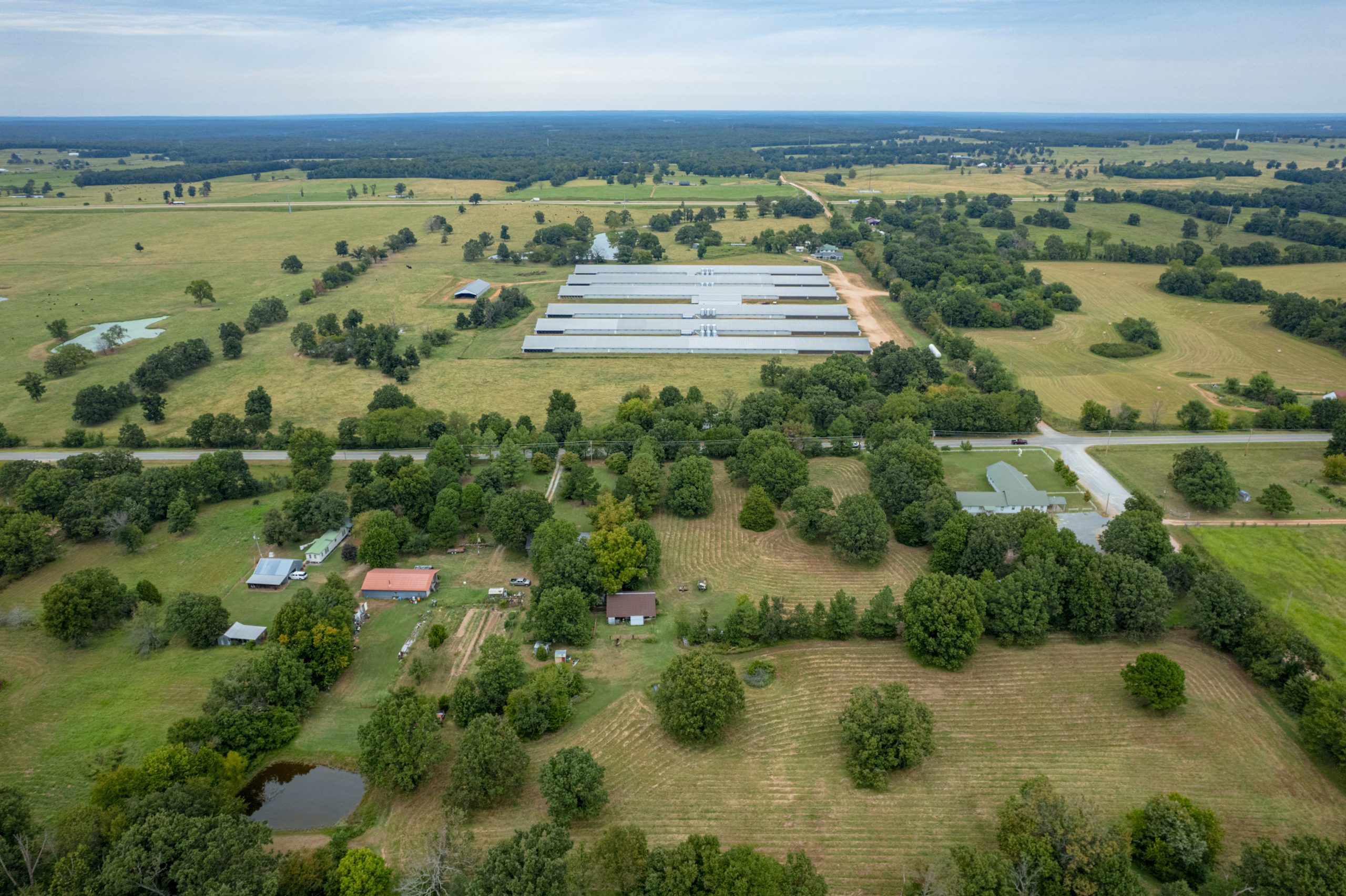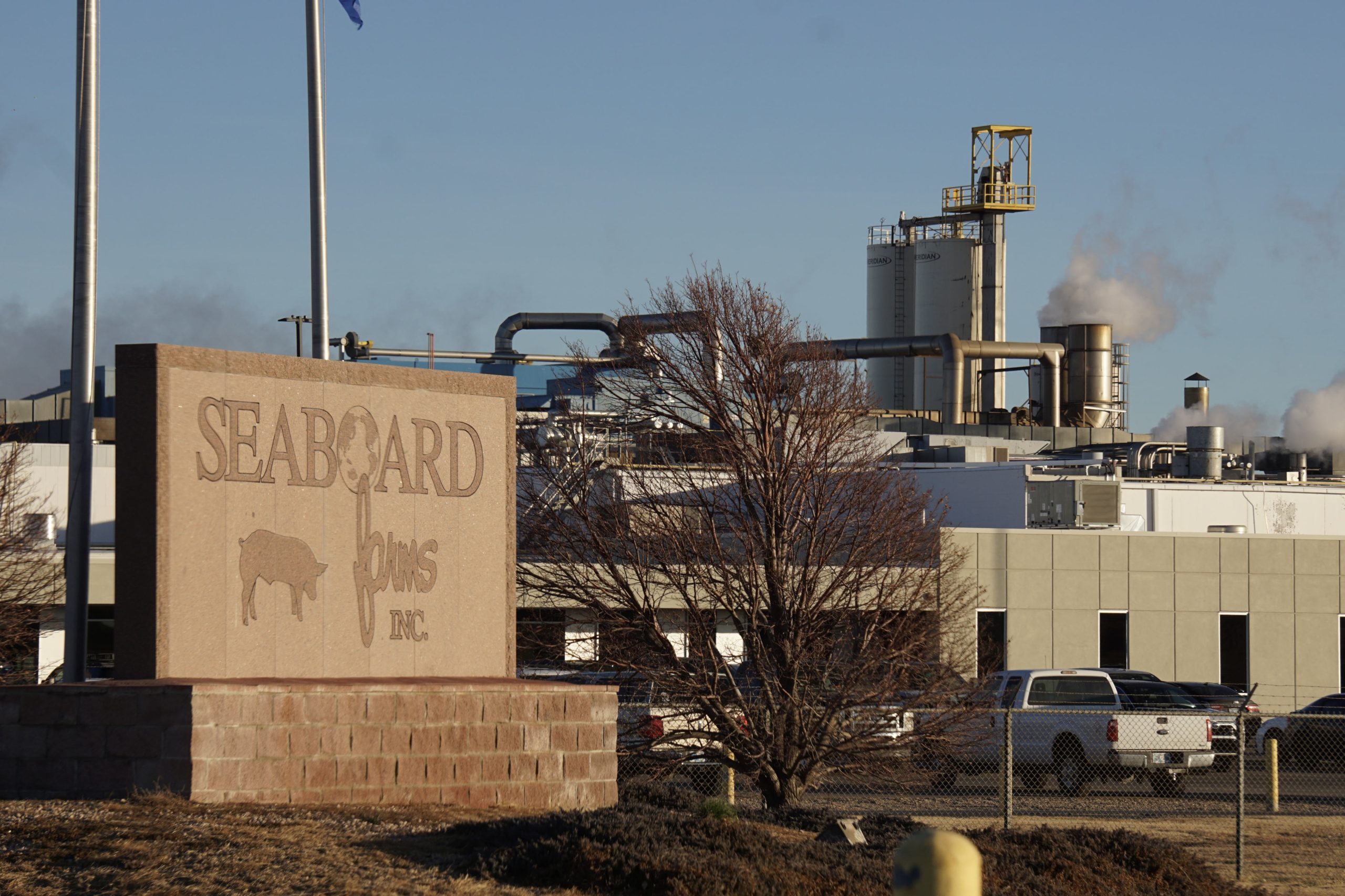Oklahoma Gov. Kevin Stitt vetoed a bill requiring groundwater users to prove they are staying under state-imposed limits, keeping the state as one of the few above the declining Ogallala Aquifer not to require agriculture well owners to track water usage.
Investigate Midwest recently reported that groundwater levels in the state’s panhandle have plummeted by 23% over the past 30 years, mainly due to crop production to feed hogs raised and processed by Seaboard Foods.
Northwest Oklahoma depends on groundwater from the Ogallala Aquifer, which stretches underneath eight states. Nebraska, Kansas, Texas, Colorado, Wyoming and New Mexico require most agriculture wells to have meters or other water usage tracking devices. South Dakota allows for state officials to monitor water well flows.
Oklahoma’s Republican-majority Legislature approved similar requirements with House Bill 3194, requiring all water well permit holders — except residential users — to use “water well flow meters or an alternative measuring system.”
But Gov. Stitt vetoed the measure, calling it an infringement of property rights.

“House Bill 3194 is government overreach at its finest,” Stitt, a Republican, said in his veto message. “While forcing water meters on Oklahomans may seem innocuous, it is undoubtedly a violation of private landowners’ rights and emboldens the government to continue down that path.”
Groundwater users in northwest Oklahoma are limited to 2 feet of water per acre yearly, around 650,000 gallons.
Well owners submit usage reports to the Oklahoma Water Resources Board but do not have to prove they stayed under the 2 acre feet limit. The state has never issued a citation for overuse and lawmakers said the lack of meters makes it difficult to understand the state’s water depletion crisis.
“There's a lot of those that are out there worrying about big brother knowing how much water they are using, worried that the government is gonna cut back their amount of water … but that’s not my goal at all,” said Rep. Carl Newton, a northwest Oklahoma Republican who co-authored the water metering bill.
The Oklahoma Water Resources Board projects a 6.7% increase in irrigated acres over the state’s portion of the Ogallala Aquifer from 2022 to 2075.
Newton said he has already spoken with the governor about his bill and hopes to bring it back next year. Stitt’s office did not respond to a request for comment.
“My goal is to get a good handle on what our water resources are and how much we use,” Newton said.
Lawmakers who opposed HB 3194 said it violated state law, which considers groundwater a private property right.
The Oklahoma Farm Bureau also lobbied against the bill, calling it a “conflict with the state’s current water law.”
“The provisions of HB 3194 would have only burdened permitted water users without achieving the goal of responsible water use and conservation by failing to provide funding and enforcement authority for the Oklahoma Water Resources Board to implement the provisions of the bill,” the Farm Bureau said in a statement to Investigate Midwest.










